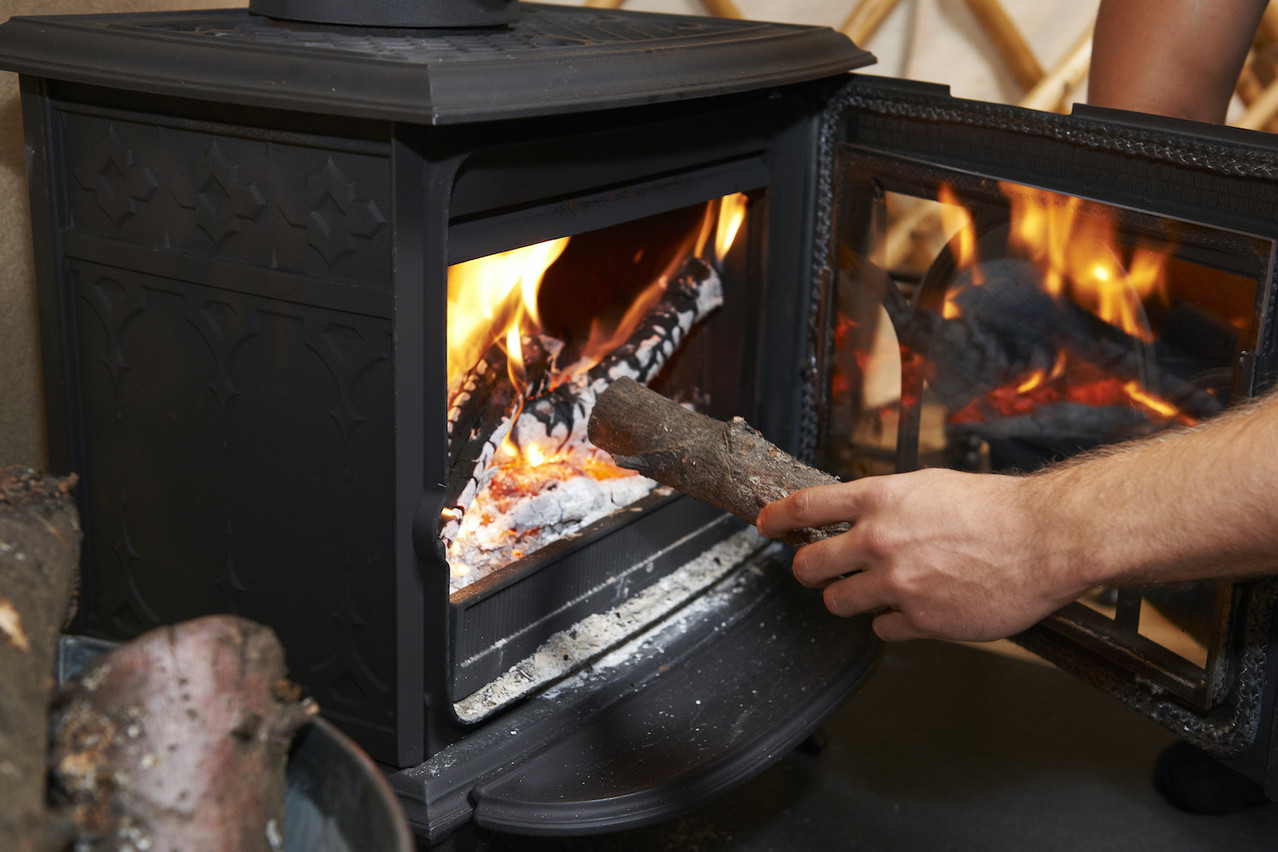Prices for petroleum products were up 56.9% in one year, according to the Statec in March 2022, and 106% for heating oil between 1 July 2020 and 28 February 2022, according to the Chamber of Employees (CSL). Faced with the explosion in energy prices, consumers are looking for alternatives. This benefits certain business segments.
This is particularly true of wood stove installers. “Before, we only did three or four installations a year. Now it’s four times as many,” says Johan Gries, head of Gries Frères. The turnover, which usually varied between €140,000 and €170,000, €exceeded 230,000 in 2021.
And in the first quarter of 2022, “we are already €10,000 higher than last year.” The two brothers in charge of the family business employ one person on a fixed-term contract. “If demand remains as strong as it is, we will be able to make it permanent, and even hire one or two more people within two years,” Gries predicts.
Delivery delays
“We work in France, Luxembourg and Belgium. During the previous energy price hikes, we mainly received calls from French and Belgian customers. Since the end of last year, they are also Luxembourgers because they have seen their gas advances increase,” Gries says.
The wood stove is therefore no longer there just to look good, but represents a supplement or even an alternative to gas heating to reduce the bill. “With wood, you can have a certain independence in terms of fuel,” he analyses.
It is necessary to budget between €5,000 and €10,000 to install a wood or pellet stove. “We are asked for both equally. Pellets are more practical. Those who are looking for the aesthetics of the flame will choose wood. In any case, the high demand worldwide has caused lead times to explode. They have gone from one week to six months.”
Prices are rising for all energies.
Stove prices have also risen, by about 10-12% in one year, adds Jean-Sebastien Koch, head of Cottyn-Kieffer. Demand has doubled for this company and turnover has increased by about 30%.
Their installation costs between €6,000 and €7,000. Maintenance then consists of an annual sweeping, at around €150. In the event of constant use, which is “more and more often the case”, the company advises sweeping every six months.
Private individuals have also turned to photovoltaic panels. The demand has almost doubled for the specialist companies.
Heat pump and insulation
Others choose the heat pump, which is “worth it especially for new constructions or complete renovations”, explains the Baumert company. The cost is €30,000 to €40,000. Despite the high price, the company has noticed an increase in calls from individuals--between three and four a week--who have been asking about the subject for about a month.
Before investing in heating, it is also necessary to invest in insulation, to avoid energy losses. “We have many more requests,” says 3D Concept Services, “for double or triple glazing. I can’t say we’ve done twice as much, but we’re not far off.” Customers are also “in a greater hurry to sign” because of rising prices. “Last week they went up another 7% for everything aluminium, PVC.”
At Isomontage insulation, the growth in demand “has already been going on for a few months,” says director Jean-Claude Wauters. But he regrets that individuals do not receive enough state aid to invest at this level. It is necessary to count up to “€150 per square metre” to insulate, he calculates.
Case-by-case basis
“Each situation is different,” warns Fenn Faber, director of the Klima-agency. It depends on the “location, the technical situation of the building and the budget.” Especially since “prices are rising for all energies,” says Sarah Juchems, head of the consultancy. So is the price of wood. Before changing the heating system, it is therefore necessary to modify certain behaviours to reduce consumption, by lowering the temperature for example. But also by investing in the energy efficiency of the building.
In the case of a new building, the standard includes “ideally, a heat pump with geothermal energy,” says Faber. In addition to photovoltaic panels, the perfect combination is achieved.
It is more complicated for existing buildings. Photovoltaic panels and a wood stove can in any case be complementary. In the first case, “we produce and inject into the network”, explains the director of the agency. The investment pays for itself after 10 to 12 years on the basis of the re-injection premium.
The wood or pellet stove can be used as a complementary solution to reduce the gas bill, even if the agency recommends it for rural areas, as in urban areas it deteriorates the air quality. Certain regulations must also be respected. The profitability here is more difficult to calculate for the two specialists, since the prices of the models vary greatly and the energy efficiency depends on several factors, such as whether or not it is connected to the central system.
What about wind turbines? “From a technical and economic point of view, so far we are not convinced that it makes sense” for private individuals. These are rather “large projects,” says Faber.
The question also arises for fuel consumption. The company Auto Racing has noted a “big boom” in the demand to convert vehicles to E85 super-ethanol. Even if the customers are 80% French, the others are Luxembourg residents close to the border. This fuel, made up of up to 85% bioethanol, is not available in Luxembourg but, according to the company, allows the cost of a full tank to be halved, while the price of conversion is €800 . “In 13 fill-ups, it pays for itself,” says manager Samuel Duca.
This story was first published on . It has been translated and edited for Delano.
